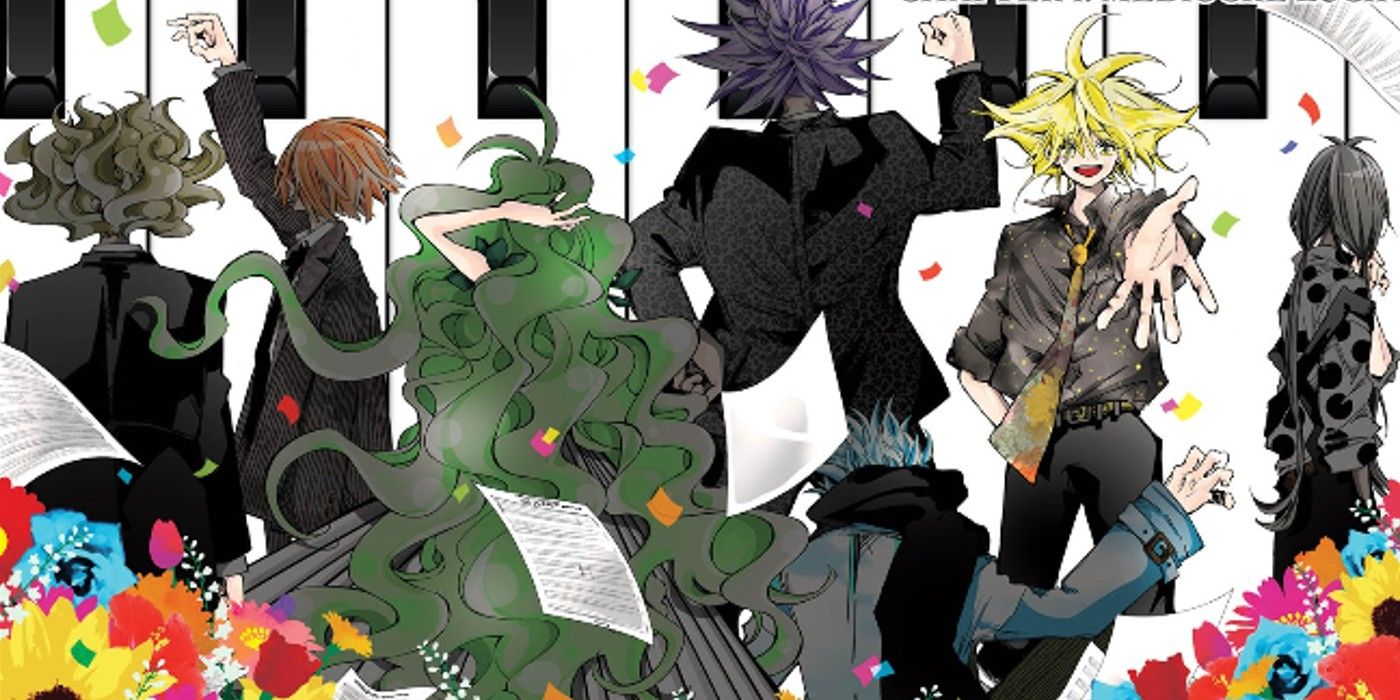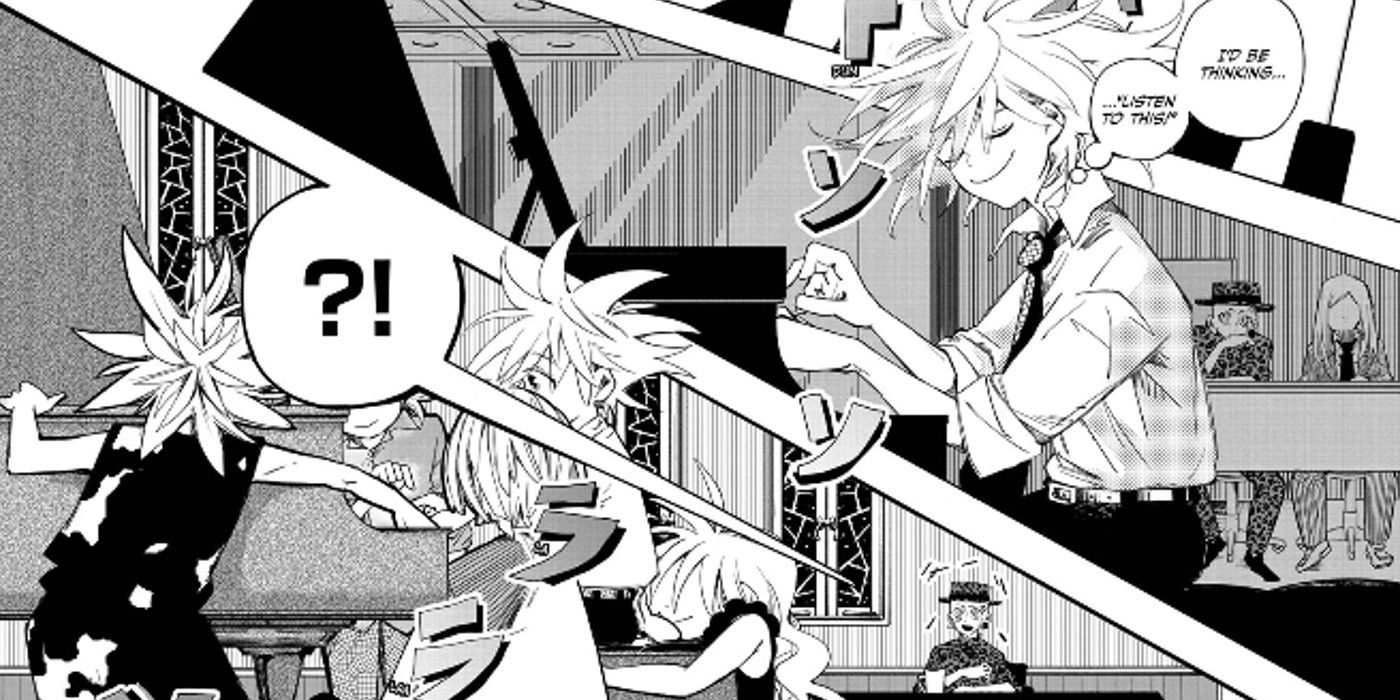
Warning! Spoilers ahead for PPPPPP chapter 1!
In their latest issue, Shonen Jump just released the debut issue of the manga PPPPPP, which delves into the life of a septuplet named Lucky who is haunted by his mediocrity at the piano in comparison to the incredible talents of his siblings--but it's not jealousy.
Lucky's failure costs him tremendously, and it's all captured in the first issue of Shonen Jump's PPPPPP by mangaka Mapollo 3. Born into a home of not just six prodigious brothers and sisters, but whose father is also a legendary pianist, Lucky's inability to play well literally caused his family to break apart, as his mother protected her son from the physical and mental abuse from her husband, causing the two to divorce, leaving Lucky and his mother alone. Lucky is weighed down by the belief that his mediocrity forced his mother to lose her other six children and husband, and there's no one to tell him otherwise as his mother, of course, succumbs to a severe illness and spends her days incapacitated in a hospital. Lucky's separation from his family is further exacerbated by the fact that the entire world refers to his brilliant brothers and sisters as sextuplets as no one knows he exists or is related to them, not even his friends or classmates.
Lucky's suffering comes in other forms, too, one of which causes him to compare himself to Cinderella. This provocative comparison isn't incongruous, however. It's quite accurate. Lucky now lives with his aunt (his mother's sister) who just so happens to take his father's side and therefore treats Lucky with contempt, which usually manifests in the form of her assigning him outrageous chores like Cinderella was forced to endure at the hands of her evil stepmother. Lucky's cousin also takes some stylistic cues from Cinderella's step-sisters as well. But, in a stunning display of selflessness, which is also reminiscent of Cinderella's character, Lucky never shows he's unhappy or expresses his frustration because he feels that he doesn't have the time to worry about himself.

But worst of all is that Lucky loves the piano and wants to play. But his aunt and cousin have torn away at Lucky's self-esteem to such an extent that he actually believes he doesn't deserve to sit at the keys. Sadly, the only times he feels comfortable performing is for his mother who always supported his playing despite his lack of talent. These moments are unfortunately rare because of the hospital's policies.
These conflicts are characteristic of successful Shonen series, especially as Lucky embraces the piano at the behest of his mother when she awakens, encouraging him to pursue his dream despite the overwhelming odds. But there are other factors that further hint at PPPPPP's likelihood of success: mangaka Mapollo 3's incorporation of the supernatural and the acceptance of Lucky's shortcomings by people of consequence. In true Shonen-like fashion, this new Shonen Jump manga doesn't rely on the reader's imagination to capture the power of music. Mapollo 3 makes it so that a moving melody can cause people to have visions. In fact, this is what causes the judge for a musical school to accept Lucky to his institution. Even though Lucky's playing was elementary, the judge believes that mediocrity can surpass talent if one's music can cause the audience to feel their emotions through these visual experiences. Lucky's acceptance creates the impression that Lucky is special, which readers instinctively want for their heroes, but even more importantly, that his specialty isn't normal and actually a personal failing. This is not only an effective trope used in various Shonen series like Black Clover and Naruto, but enhances the reader's interest in Lucky and makes him want to succeed even more.
from ScreenRant - Feed https://ift.tt/3znOZ0a

0 Comments